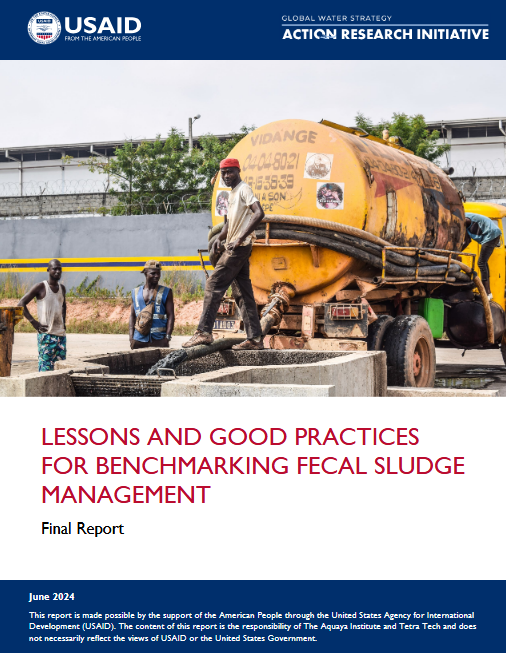Lessons and good practices for benchmarking fecal sludge management
 |
Leçons et bonnes pratiques pour l'évaluation de la gestion des boues de vidange
Jun 2024 ; 86 páginas
Ed. Aquaya - San Anselmo
Formato descargable: PdF
Sitio web: https://aquaya.org/wp-content/uploads/urban_wash_fsm_benchmarking_report_may2024_508.pdf
Abstract:
Benchmarking involves assessing performance indicators that can be compared to targets, historical values, and other entities (e.g., persons, organizations, cities, or countries). This approach to fostering performance improvements contributes to the enabling environment for effective water and wastewater services, which have traditionally existed as non-competitive monopolies. Although large water and wastewater utilities have widely adopted benchmarking, the practice has only begun expanding to fecal sludge management (FSM), also called decentralized, on-site, or non-sewered sanitation. This report addresses the question: What are good practices for FSM benchmarking systems, and how should these be implemented in different institutional or governance contexts? The report synthesizes literature and case studies to identify enabling factors relevant to effective FSM benchmarking.
Palabras claves: |
acceso a saneamiento (CI) (DT) (HP) (ope) , lodos (CI) (DT) (HP) (ope) |
Editor/Difusor: |
|
Aquaya
-
The Aquaya Institute - San Anselmo - Estados Unidos |
Si hay un enlace roto, estaremos encantados de recibir un mensaje: communication@pseau.org